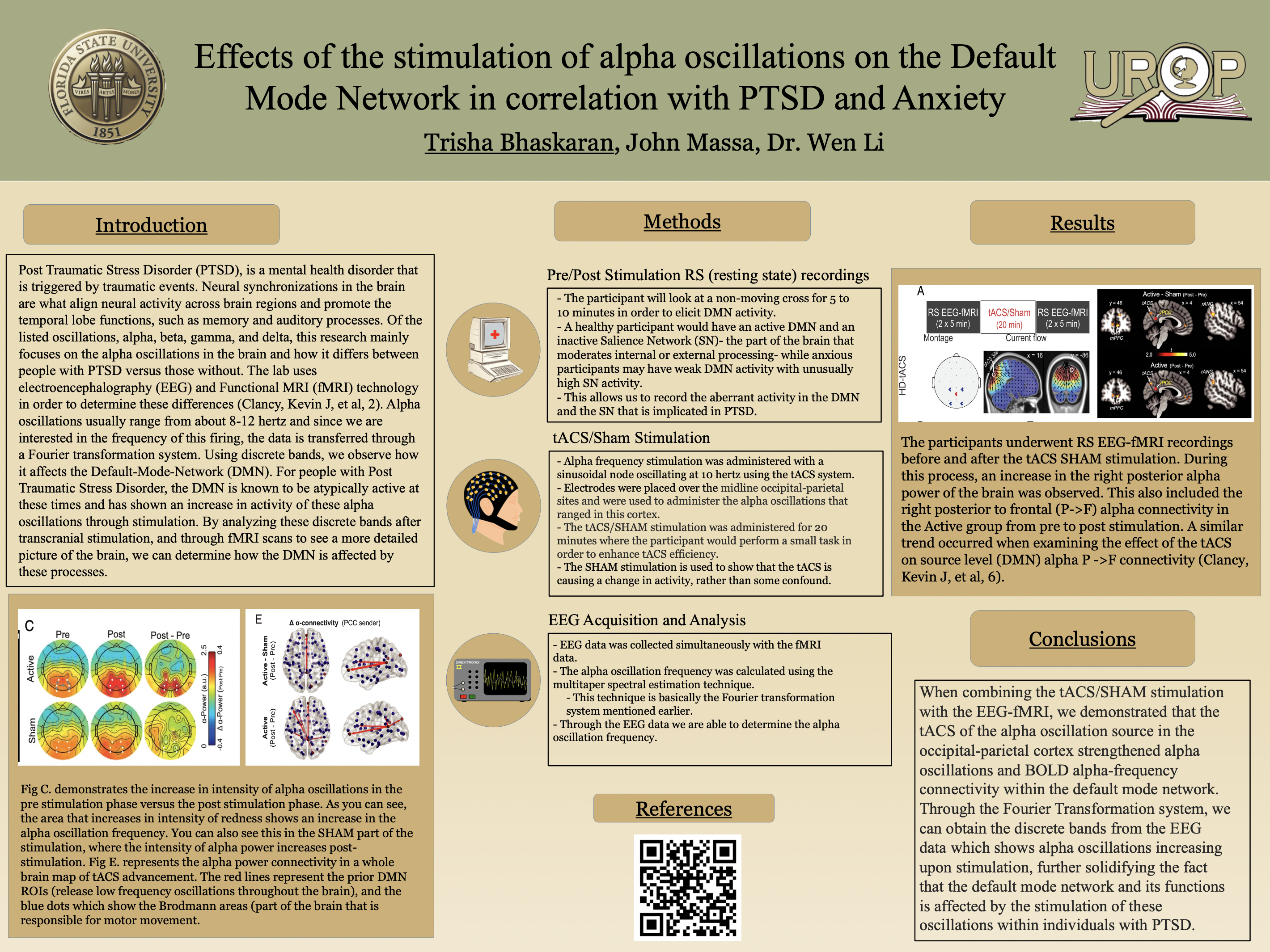Research Symposium
23rd annual Undergraduate Research Symposium, April 6, 2023
Trisha Bhaskaran Poster Session 3: 2:45 pm - 3:45 pm/ Poster #381

BIO
Hello! My name is Trisha Bhaskaran and I am from Orlando, Florida. Currently, I am majoring in Cell and Molecular Neuroscience on the pre-med track with ambitions to expand my career into neurosurgery. My research interests mainly focus on the psychology of the human mind. To be more specific, I am intrigued by the science behind the way our brain works and influences our everyday actions. Research aside, I am also a passionate Indian Classical Dancer and I love to play the violin. I enjoy listening to music, trying new types of milk tea flavors, and spending time with my friends.
Effects of the stimulation of alpha oscillations on the Default Mode Network in correlation with PTSD and Anxiety
Authors: Trisha Bhaskaran, John MassaStudent Major: Cell and Molecular Neuroscience
Mentor: John Massa
Mentor's Department: Psychology Mentor's College: Florida State University Co-Presenters:
Abstract
Post Traumatic Stress Disorder (PTSD), is a mental health disorder that is triggered by traumatic events. Neural synchronizations in the brain are what align neural activity across brain regions and promote the temporal lobe functions, such as memory and auditory processes. Of the listed oscillations, alpha, beta, gamma, and delta, this research mainly focuses on the alpha oscillations in the brain and how it differs between people with PTSD versus those without. The lab uses electroencephalography (EEG) and Functional MRI (fMRI) technology in order to determine these differences. Alpha oscillations usually range from about 8-12 hertz and since we are interested in the frequency of this firing, the data is transferred through a Fourier transformation system. Using discrete bands, we observe how it affects the Default-Mode-Network (DMN). For people with Post Traumatic Stress Disorder, the DMN is known to be atypically active at these times and has shown an increase in activity of these alpha oscillations through stimulation. By analyzing these discrete bands after transcranial stimulation, and through fMRI scans to see a more detailed picture of the brain, we can determine how the DMN is affected by these processes.
Keywords: Neuroscience, Brain, Anxiety, fMRI, PTSD


